Brief History of the Modern (Business) Internet
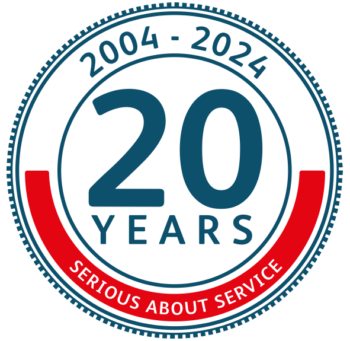
Beaming is 20. A lot has happened in the world in the time in which we’ve been around, especially in the tech and internet space, so we decided to commemorate that in this report.
Our Brief History of the Modern (Business) Internet highlights around 100 significant events in the tech and internet business landscape. Some are inspiring and uplifting, others require more contemplation, but each is significant in one or more ways:
We’ve looked at major events in the evolution of major tech, internet and telecommunications organisations that shape how businesses and consumers see and interact with the world. We’ve included crucial innovations that have changed how businesses and employees work. And we’ve looked at some of the most significant political, economic and social events that have influenced and been influenced by technology and the internet.
Our research dipped into decades of knowledge from people in our team, as well as media reports and the new wave of Generative AI tools currently transforming the world of work. All of the images in this report were created using DALL·E 3. Oh, and we focused on business, well, because that’s our bag!
Enjoy.
Ps. If you prefer to download a PDF you can do here
2004
Beaming Begins
25 June 2004: Launched in Hastings during the broadband rush of the early noughties, Beaming filled a gap in the market for high-quality connectivity and communications products, combined with excellent customer service. 20 years later, Beaming is a thriving ISP serving thousands of businesses across the UK with internet and managed services.


Podcasting is Born
13 August 2004: Podcasting is believed to have begun with Daily Source Code, a pioneering production from former MTV video jockey and internet entrepreneur Adam Curry. Daily Source Code covered tech trends, internet culture and music, and played a significant role in popularising podcasting as a way of distributing audio content.
Google Becomes a Public Company
19 August 2004: Google went public with a market capitalisation of $23bn, making it one of the world’s most valuable tech companies in 2004. Since then, it’s evolved into a $2.15tn conglomerate called Alphabet with a portfolio that includes cloud computing, streaming, autonomous vehicles, and life sciences. Google still accounts for over 90% of online searches.
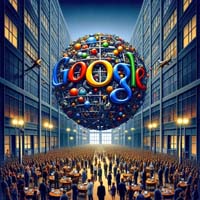

Web 2.0 Gets Coined
5 October 2004: The term “Web 2.0” was coined during a brainstorming session by Tim O’Reilly, the founder of publishing company O’Reilly Media, to describe a new wave of web-based technologies and applications that were emerging at the time. The concept aimed to describe the transition of the web from static pages to a more dynamic and interactive platform.
Boston Globe Reveals IoT
25 October 2004: The term’ Internet of Things’ (IoT) was coined in the 1990s. However, it became popular in 2004 when the media started to take an interest in the concept. On 25 October, the Boston Globe reported on a warehouse equipped with an IoT mesh network featuring 600 wireless radio microchips. There are approximately 17bn connected IoT devices worldwide now.


BBC Reports Soaring Broadband
27 December 2004: ADSL ‘broadband’ allowing faster data transmission over copper telephone lines surged during 2004, with hundreds of millions of new connections worldwide. At year-end, the BBC reported the number of UK people accessing the internet via broadband had overtaken dial-up. Researchers Point Topic said it was one of the fastest-growing technologies ever.
2005
Amazon Introduces Prime
2 February 2005: Amazon introduced Prime, its first membership program offering ‘all-you-can-eat’ express shipping for a flat fee. Prime revolutionised e-commerce, setting expectations that others in the industry have struggled to achieve, and has been a cornerstone of Amazon’s continued success. Today, there are over 200m Amazon Prime subscribers worldwide.


Yahoo Buys Flickr
20 March 2005: Yahoo’s acquisition of Flickr, a pioneer of online photo sharing, underscored the growing importance of user-generated content on the internet. In subsequent years, it faced increased competition from other photo-sharing platforms, particularly Instagram. In 2018, Flickr was sold to SmugMug and still caters to serious photographers.
Citizen Journalism Goes Mainstream
7 July 2005: When London experienced a series of suicide bomb attacks in 2005, eyewitnesses used their mobile phones and digital cameras to capture photos, videos, and firsthand accounts of the events. The London bombings were one of the first major moments for citizen journalism, where members of the public shared news and information via social media platforms.


Rupert Murdoch Buys MySpace
19 July 2005: At its peak, MySpace was the dominant social network, with millions of users worldwide and playing a significant role in shaping online culture. When Rupert Murdoch’s News Corporation purchased it for $580m, MySpace initially remained a dominant player in the social media landscape. However, it struggled when confronted with Facebook and was sold for $35m in 2011.
eBay Acquires Skype
12 September 2005: eBay’s purchase of voice and video over internet specialist Skype for approximately $2.6bn was seen as a strategic move to strengthen its position in the e-commerce market. While the integration between eBay and Skype did not achieve significant traction, eBay more than made its initial purchase price back when offloading it later.
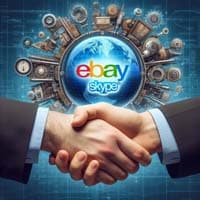
2006

Amazon Gets Into Web Services
14 March 2006: The launch of AWS in 2006 marked the beginning of a transformative era in cloud computing, redefining how many startups, enterprises, and developers approached their computing needs. While AWS wasn’t the first cloud computing platform, it transformed the landscape and remains the dominant player. Revenues are expected to top $100bn in 2024.
Snowboard Store Pivots to Shopify
14 April 2006: Shopify was born when Canadian startup Jaded Pixel, which started as an online snowboard store, created a simple e-commerce platform to remove the common barriers faced by small businesses, micro-enterprises, and individuals when trying to sell online. Today, over 1.75m merchants use Shopify as their primary e-commerce platform.
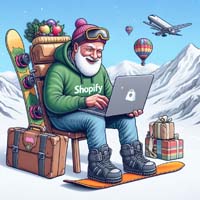
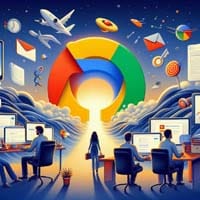
Google Provides Productivity Apps
28 August 2006: Originally known as Google Apps for Your Domain, Google Workspace offered a cloud-based alternative to traditional office productivity software, with subscription pricing, easy collaboration and no need for on-premises infrastructure and maintenance. Today, over 6m businesses use Google Workspace for productivity and communication.
Google Gets YouTube
13 November 2006: When it acquired video-sharing platform YouTube for $1.65bn, Google gained a massive user base and solidified its position in the online video space. YouTube complemented services like Google Search and Google Ads and provided new opportunities for growth and monetisation. YouTube reportedly generated $31.5bn in advertising revenues in 2023.
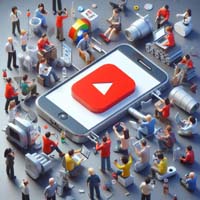
2007

Netflix Starts Streaming
16 January 2007: While Netflix was founded as a DVD rental service, its shift to online streaming revolutionised the entertainment industry, disrupting traditional TV networks and movie studios and paving the way for subscription-based streaming platforms. Netflix now has 270 million subscribers and more than 500 million total users.
Apple Launches iPhone
29 June 2007: When Apple’s founder, Steve Jobs, introduced the first iPhone, he said the event would make history. He was right. The iPhone was the first true smartphone, revolutionising mobile communication and computing and moving most web usage to mobiles. More than 2.2bn have been sold, making Apple one of the world’s most profitable companies.


BBC Introduces iPlayer
25 December 2007: BBC iPlayer was one of the first major on-demand streaming services from a traditional broadcaster, initially providing catch-up TV and radio services for BBC programmes. Since its launch, it has evolved to offer live streaming, on-demand content, and exclusive programming. It has helped make streaming a primary source of entertainment.
2008
Yahoo Releases Hadoop
1 January 2008: Yahoo’s release of Hadoop as an open-source project transformed it from an internal project to a global force. Hadoop, a framework for storing and processing large datasets, revolutionised how organisations handle big data, enabling scalable, cost-effective processing of massive datasets across clusters of commodity hardware.
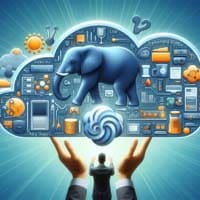
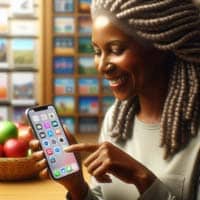
App Store Opens for Business
10 July 2008: Apple’s App Store introduced a centralised platform for distributing mobile apps, enabling developers to reach a global audience. Before it, they were distributed through various channels, often requiring manual installation and updates. Developers had to negotiate deals with carriers or device manufacturers to get their apps pre-installed.
Bill Gates Steps Back From Microsoft
31 July 2008: Bill Gates, co-founder of Microsoft and one of the most influential figures in computing history, stepped away from day-to-day activities at the company to focus on health and education philanthropy at the Bill & Melinda Gates Foundation. Gates shaped the personal computing era at Microsoft and helped build one of the world’s most valuable companies.
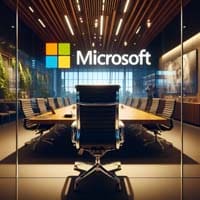

Airbnb Starts in San Francisco
11 August 2008: Airbnb was started by its founders as a way to rent out air mattresses in their San Francisco apartment. It evolved into the most significant player in the global accommodation market: a global platform for short-term lodging and home-sharing with 4m hosts and 7m global listings. At the time of writing, Airbnb was worth $93bn.
Large Hadron Collider Goes Live
10 September 2008: The Large Hadron Collider, a 17-mile particle accelerator located at the European Organization for Nuclear Research in Switzerland, was the biggest machine the world had seen. It required a global network of computing centres and storage facilities to handle the data volumes produced during experiments studying the nature of matter and the universe.

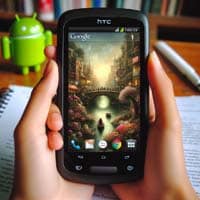
HTC Provides First Android Phone
23 September 2008: It took a team to rival the iPhone. That team was led by Google, which unveiled the Android mobile operating system in 2007. A year later, HTC launched the first Android device. Android is used by smartphone manufacturers globally, making devices more affordable and accessible. Today, there are 3.9 billion active Android smartphone users.
SpaceX Reaches Space
28 September 2008: SpaceX’s Falcon 1 achieved a historic milestone by becoming the first privately developed, fully liquid-fueled launch vehicle to go into orbit around the Earth. SpaceX changed space transportation by developing reusable rockets, reducing the cost of launching payloads into space and making exploration and satellite deployment more accessible.


Barack Obama Wins Internet Election
4 November 2008: The internet played a significant role in Obama’s election as US President, described in some quarters as’ the election won by the internet’. Obama’s campaign leveraged social media platforms such as Facebook to reach and engage with voters, particularly young and tech-savvy demographics, and pioneered online fundraising techniques.
2009
Satoshi Nakamoto Mines First Bitcoin
3 January 2009: The first block of the Bitcoin network was mined by Satoshi Nakamoto, an individual (or group) who remains anonymous. Bitcoin sparked a global movement around cryptocurrency and blockchain technology, with the potential to change how we approach finance, record-keeping and commerce. An estimated 1bn people around the world use cryptocurrencies now.
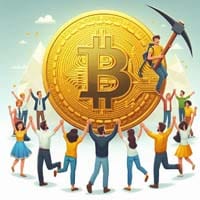
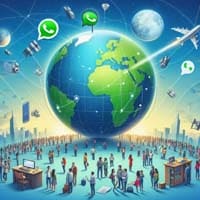
Birth of Whatsapp
4 January 2009: WhatsApp’s smartphone messaging app was designed to be a convenient, cost-effective, secure alternative to traditional SMS messaging. It has become one of the world’s most popular messaging platforms globally. WhatsApp was acquired by Facebook for $19bn in 2014 and is predicted to reach 3.14bn users by 2025.
US Government Relinquishes Internet Oversight
30 September 2009: The IANA transition, when ICANN – the body coordinating the assignment of domain names and IP addresses – stopped operating under contract with the US Department of Commerce, was seen as a historic milestone in the evolution of internet governance, effectively removing US government oversight of the internet.

Fitbit Tracker Launches
1 October 2009: The Fitbit Tracker release marked a significant breakthrough in wearable technology. One of the first devices specifically designed for fitness tracking purposes, it combined these capabilities with user-friendly design, wireless connectivity, and social features, allowing users to share with their friends. Today, Fitbit has 128m registered users.